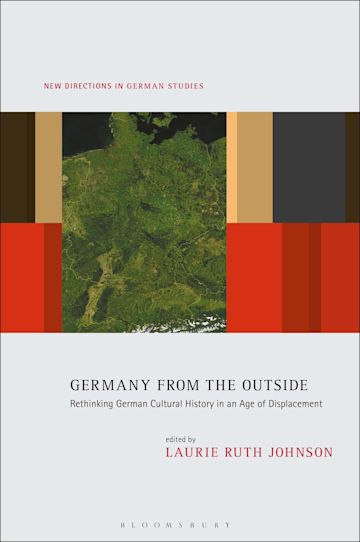This product is usually dispatched within 3 days
Free US delivery on orders $35 or over
You must sign in to add this item to your wishlist. Please sign in or create an account
The nation-state is a European invention of the 18th and 19th centuries. In the case of the German nation in particular, this invention was tied closely to the idea of a homogeneous German culture with a strong normative function. As a consequence, histories of German culture and literature often are told from the inside-as the unfolding of a canon of works representing certain core values, with which every person who considers him or herself “German” necessarily must identify. But what happens if we describe German culture and its history from the outside? And as something heterogeneous, shaped by multiple and diverse sources, many of which are not obviously connected to things traditionally considered “German”?
Emphasizing current issues of migration, displacement, systemic injustice, and belonging, Germany from the Outside explores new opportunities for understanding and shaping community at a time when many are questioning the ability of cultural practices to effect structural change. Located at the nexus of cultural, political, historiographical, and philosophical discourses, the essays in this volume inform discussions about next directions for German Studies and for the Humanities in a fraught era.
| Published | Apr 18 2024 |
|---|---|
| Format | Paperback |
| Edition | 1st |
| Extent | 368 |
| ISBN | 9781501375897 |
| Imprint | Bloomsbury Academic |
| Dimensions | 9 x 6 inches |
| Series | New Directions in German Studies |
| Publisher | Bloomsbury Publishing |
Germany from the Outside is a significant contribution to interdisciplinary German Studies that owes its inspiration to new approaches in postcolonial and migration studies. With its emphasis on stories of expulsion, exile, and displacement from Goethe to Heine, from Brecht to Yoko Tawada, and from Heiner Müller to Özdamar, and with essays written by leading scholars, it will have a lasting impact on international Germanistik.
Paul Michael Lützeler, Rosa May Distinguished University Professor in the Humanities and Director of the Max Kade Center for Contemporary German Literature, Washington University, St. Louis, USA
Germany from the Outside forces us to question why teaching and research in German Studies continue to be haunted by the legacies of racial and ethnic nationalism, empire, monolingualism, and one-dimensional notions of mobility and exchange. This volume provides a much-needed critical vocabulary for analyzing what has been perhaps evident yet underappreciated all along: novelists, philosophers, dramatists, and filmmakers have been grappling with complex identifications, leading lives shaped by displacement, fighting against exclusion, and resisting a stable notion of Germanness. The contributors thus illuminate the diversity and plurality that emerges when we look at German cultural production from multiple positions.
Vance Byrd, Presidential Associate Professor of Germanic Languages and Literatures, University of Pennsylvania, USA

This book is available on Bloomsbury Collections where your library has access.
Free US delivery on orders $35 or over
Your School account is not valid for the United States site. You have been logged out of your account.
You are on the United States site. Would you like to go to the United Kingdom site?
Error message.

